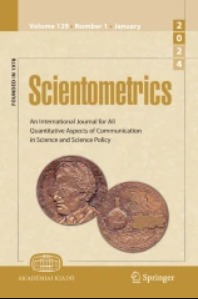
Air travel and research collaboration: a quasi-experimental insight
This article analyzes the impact of the availability of long-haul flights on international scientific collaboration. The background assumption is that a wider availability of long-distance flights enables greater mobility for scientists, which in turn increases the likelihood of long-distance research collaboration. The analytical framework of this article is based on a quasi-experimental approach. Specifically, a discontinuity in the global network of air routes due to regulatory requirements is used as a source of random selection—i.e., a natural experiment. Two complementary methods are used to model the effect: instrumental variable design and regression discontinuity. Combining the bibliometric data from Microsoft Academic Graph and flight data from the International Civil Aviation Organization, this paper provides evidence of a causal relation between air transport availability and research collaboration. The results show that direct long-haul flights positively impact the number of papers co-authored by scholars based in both the connected cities. The implications of these results for science policy are discussed in the context of the virtualization of scientific communication resulting from the COVID-19 pandemic and air transport’s negative climate impacts.




